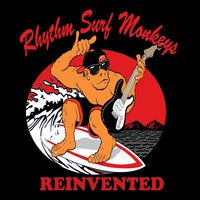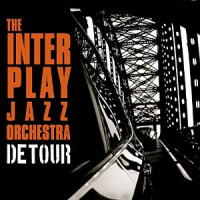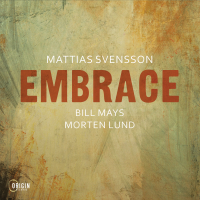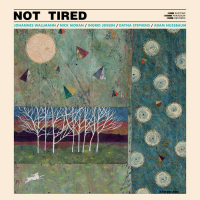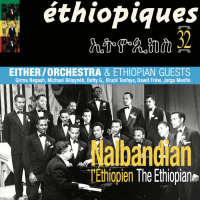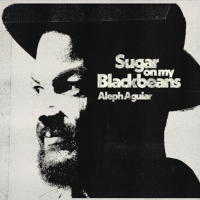Home » Jazz Articles » Album Review » Lyle Mays Quartet: The Ludwigsburg Concert
Lyle Mays Quartet: The Ludwigsburg Concert
Mays solo work has been surprisingly scant given his talent and name recognition. Having recorded only four albums under his own name, he has been absent from the music scene for the past ten years. Comparing his solo work to that of the PMG, is difficult as PMG incorporated so many moving parts; fusion, electronics, acoustic and Latin influences were all in the mix at given points. To that extent, Mays' output has not been entirely distinct from his work with Metheny though he has brought his own unique harmonic qualities and compositional skills to his limited body of work; his playing has often been compared to the most well-known, best-in-class jazz pianists.
Following his successful, self-titled debut (Geffen, 1986) Mays' second release, Street Dreams (Geffen, 1988), represented a branching out, adding classical elements including a full orchestra on some tracks, some jazz- rock, big band, world music along with his more directly lyrical pieces. The results were inconsistent. Mays took on a less customary approach (for him) with an acoustic trio on Fictionary (Geffen, 1993) featuring bassist Marc Johnson and drummer Jack DeJohnette and the consequences were decidedly more satisfying. His last studio recording, to date, Solo: Improvisations for Expanded Piano (Warner Bros., 2000) featured acoustic piano that Mays later enhanced with electronics. It was tasteful, as always, but without much lasting impact.
The Ludwigsburg Concert does not constitute a comeback, as the performance was recorded in 1993 at the popular German Ludwigsburger Festival, and is being released as part of a "Piano Heros" series from the German record label, SWRmusic. Despite the twenty-plus year gap to release, the two-CD collection is a gem; the live setting is a showcase for Mays that is unlike his studio work in many ways. The quartet is a mix of familiar and not so familiar names. Bill Evans alum, Johnson, is the only familiar face on the live recording. Drummer Mark Walker—unknown at the time of this concert—went on to play with saxophonist Paquito D'Rivera and the latest incarnation of Oregon in 2012. Similarly, the quartet's saxophonist Bob Sheppard has gone on to be a highly in-demand studio musician, working with Steely Dan, Rickie Lee Jones, Elvis Costello, Randy Newman, Chick Corea and many others.
Like a microcosm of the entire album, the twenty-four minute "Fictionary" does indeed open like a Keith Jarrett tune. Mays' opening solo (almost the length of the original studio track) is a thing of nuanced beauty, leading up to Shepard's saxophone, kicking up the tempo. Walker's very long drum solo is a high-powered clinic and surprisingly musical as the drummer shifts patterns and intensity for effect. "Either Ornette," a piece that did not previously appear on a Mays album, has a different dynamic thanks to Shepard's sax and Mays' somewhat more angular approach. The Latin or Brazilian influence that was a staple of the Metheny/Mays partnership, returns on "Chorinho." The tone changes yet again on "Lincoln Reviews His Notes." Johnson's solo intro is classical in nature and Mays takes it up and converts it with a slow rolling gospel feeling.
Disc Two begins with "Hard Eights," a version, that while being closer to the original (from Fictionary), benefits both from the openness of the live performance and the addition of Sheppard's very emotive saxophone solo. This is the place where Mays demonstrates an under-recognized aptitude for the avant-garde as he and Sheppard trade off inventive phrases and assorted improvisations. The saxophonist continues to validate his inclusion here with a blistering solo on "Disbelief." The piano dominated "Are We There Yet" begins as a moderately paced improvisation, later raining down torrents of notes before returning to its meditative theme. "Au Lait," from Offramp (ECM, 1981) is the only piece where Mays shares writing credits with Metheny and this version retains the intimacy of the original.
As a pianist/keyboardist and composer, Mays has drawn favorable comparisons to Jarrett, Paul Bley, Corea, George Winston and Bill Evans over the years. Collectively, that cohort could only be more all-encompassing of piano styles if Cecil Taylor were added. The reality is that Mays—especially in the PMG days—was a recognizable as an individual talent with a unique style. Certainly, as a composer, his accomplishments have been second to none. There's a sense that we haven't yet heard the best that Lyle Mays has to offer. If that's the case, we may or may not have that opportunity. Regardless of Mays' rationale for opting-out of the music scene, The Ludwigsburg Concert is a welcome reminder of the scope of his talent and great listening.
Track Listing
Disc 1:Fictionary; Either Ornette; Chorinho; Lincoln Reviews His Notes. Disc 2: Hard Eights; Disbelief; Are We There Yet; Au Lait; August.
Personnel
Lyle Mays
keyboardsLyle Mays: piano; Bob Sheppard: saxophone; Marc Johnson: bass; Mark Walker: drums.
Album information
Title: The Ludwigsburg Concert | Year Released: 2016 | Record Label: SWR Music
Tags
PREVIOUS / NEXT
Support All About Jazz
 All About Jazz has been a pillar of jazz since 1995, championing it as an art form and, more importantly, supporting the musicians who make it. Our enduring commitment has made "AAJ" one of the most culturally important websites of its kind, read by hundreds of thousands of fans, musicians and industry figures every month.
All About Jazz has been a pillar of jazz since 1995, championing it as an art form and, more importantly, supporting the musicians who make it. Our enduring commitment has made "AAJ" one of the most culturally important websites of its kind, read by hundreds of thousands of fans, musicians and industry figures every month.




